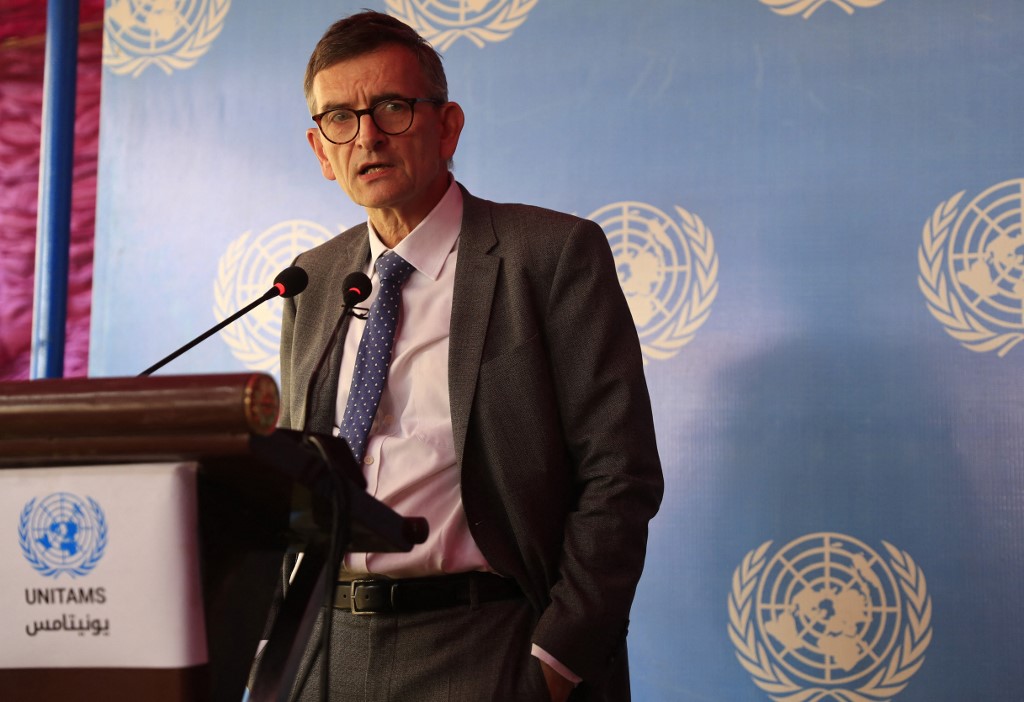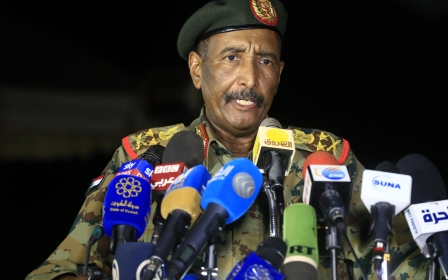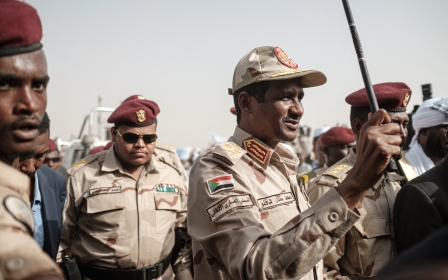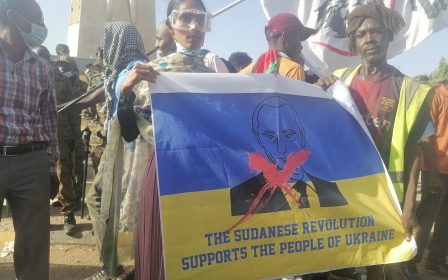Sudan coup: As millions go hungry, a bitter political game is unfolding
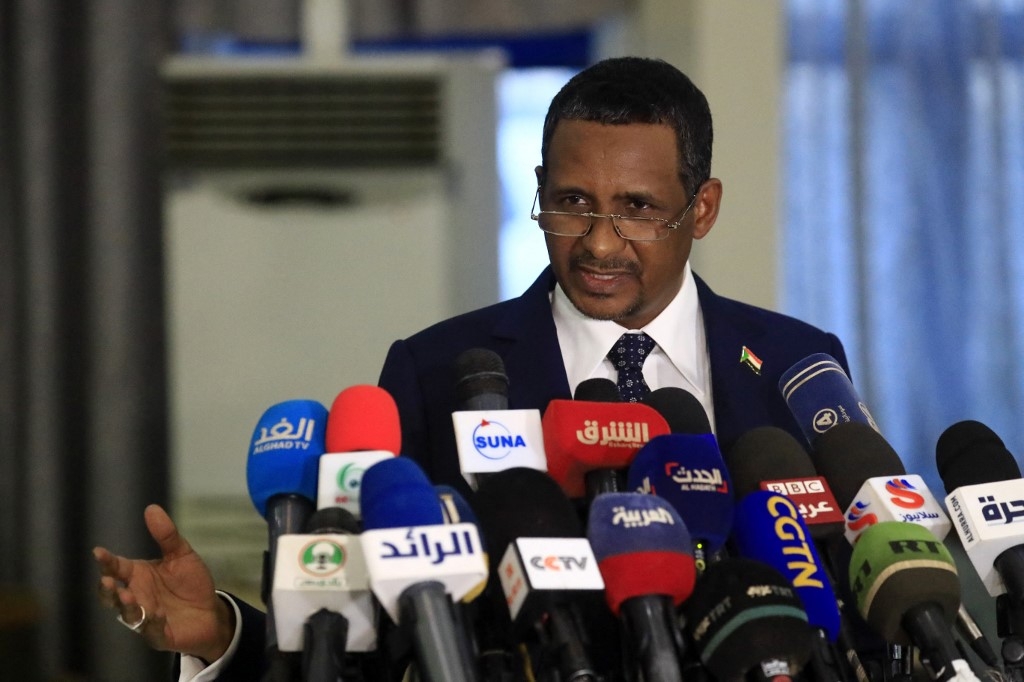
General Mohamed Hamdan Dagalo, Sudan’s second-in-command and for all practical purposes the country’s effective ruler, recently told the media that Sudan’s embassies abroad have not received any funding for the past 18 months.
Dagalo, commonly known as Hemeti, dressed in a fine suit and reading from a prepared statement, said he was exasperated by the terrible state of affairs in the country: “The people are tired, the people are suffering, the people have reached a hopeless stage. We are a disgrace in the world; our students are stranded, our embassies have stopped working.”
What the UNITAMS report fails to acknowledge are the brute facts of power on the ground
Nearly five months have passed since the 25 October military coup that cut short Sudan’s transitional period, once lauded by former Prime Minister Abdalla Hamdok as a unique civilian-military partnership.
After being ousted in the coup, Hamdok was initially placed under house arrest, then reinstated as prime minister under a short-lived deal with military leaders, before resigning in January. He is now believed to be in Dubai.
Sudan’s future now lies in the hands of an assortment of military officers, security forces and former rebels, with no unifying structure or publicly identifiable decision-making process to mediate their conflicting interests.
New MEE newsletter: Jerusalem Dispatch
Sign up to get the latest insights and analysis on Israel-Palestine, alongside Turkey Unpacked and other MEE newsletters
Last month, as Hemeti left Khartoum for a visit to Moscow, General Abdel Fattah al-Burhan, Sudan’s formal head of state, reportedly complained to Egyptian officials about the manoeuvring of his deputy, expressing concerns that Hemeti could be plotting to overthrow him with the aid of foreign parties. A few days earlier, the militia leader had been warmly received by Abu Dhabi Crown Prince Mohammed bin Zayed.
The day his deputy flew to Moscow, Burhan toured a military camp south of Khartoum, and stressed that the army would only hand over power to a government formed through “national consensus” or transparent elections.
Assuming a new role
Reaching such a consensus is a task that involves Volker Perthes, head of the United Nations Integrated Transition Assistance Mission in Sudan (UNITAMS). Established in June 2020, the mandate of this special mission was initially to provide support for Sudan during its political transition to democratic rule, including through the promotion of human rights and mobilisation of economic aid.
During the short duration of the "model" civilian-military partnership, the mission operated mostly in the background, although Perthes has spoken publicly about the need to speed up the pace of reforms. But with the coup last October, UNITAMS effectively lost its raison d’etre.
Since then, Perthes has assumed the role of mediator-at-large, rapidly becoming one of the most engaged political voices in the country. After launching a series of consultations on Sudan’s political process, he issued a summary paper last month, which he said was the product of more than 110 meetings attended by 800 people, alongside more than 80 written submissions.
One immediate takeaway is the narrow scope of these meetings, considering that Sudan’s total population exceeds 45 million.
Unsurprisingly, the report ultimately reads like a wish list. The outcomes of the consultation sessions, highlighted throughout the text, amount to performative demands, such as to stop the killing of protesters, to lift the state of emergency, to guarantee accountability for human rights violations, to modify the effectively defunct 2019 constitutional document, and to urgently form a transitional legislative council and a unified, non-partisan army.
Based on the above, the report suggested that the next steps should include “(i) prioritisation of critical steps; (ii) inclusivity and national ownership; (iii) comprehensive solutions; (iv) and effective facilitation and accompaniment”. What these items actually mean is anybody’s guess, but they come across as clinical rather than political, seemingly plucked straight out of a management handbook.
Harsh months ahead
What the UNITAMS report fails to acknowledge are the brute facts of power on the ground. Since the coup, more than 80 Sudanese protesters have been killed and dozens more arrested, amid regular demonstrations against military rule.
At the same time, almost two third of Sudan's population are expected to face acute levels of hunger by September, according to the World Food Programme. In a recent report, the WFP cites armed conflict, economic crisis and a poor harvest as the reasons behind its predictions.
The report notes: “Across the country, an average of 13.6 percent of children under five years suffer from malnutrition. In some areas, the prevalence of global acute malnutrition is as high as 30 percent or above - catastrophic levels.”
At the same time, food costs are rising, and the government - unable to fund its own embassies - has resorted to hiking taxes and slashing subsidies for fuel, electricity and bread. The 2022 budget reportedly aims for a 145 percent increase in tax revenues and a 140 percent increase in revenues from commodities and services.
Compounding matters, Sudan relies considerably on Russian wheat to feed its population. This past January, Sudan, Egypt and Iran received two-thirds of Russia’s wheat exports. But the Russian invasion of Ukraine - together, the two countries account for 29 percent of global wheat exports - threatens to bring supply disruptions, higher wheat prices and increased levels of hunger to the shanties of Khartoum.
Hemeti, ever the merchant, apparently believes he can endure the harsh months ahead by auctioning off Sudan’s coastline to his Russian hosts, or higher bidders. And Perthes, with his report done and dusted, may be looking for a promotion.
The views expressed in this article belong to the author and do not necessarily reflect the editorial policy of Middle East Eye.
This article is available in French on Middle East Eye French edition.
Middle East Eye delivers independent and unrivalled coverage and analysis of the Middle East, North Africa and beyond. To learn more about republishing this content and the associated fees, please fill out this form. More about MEE can be found here.



